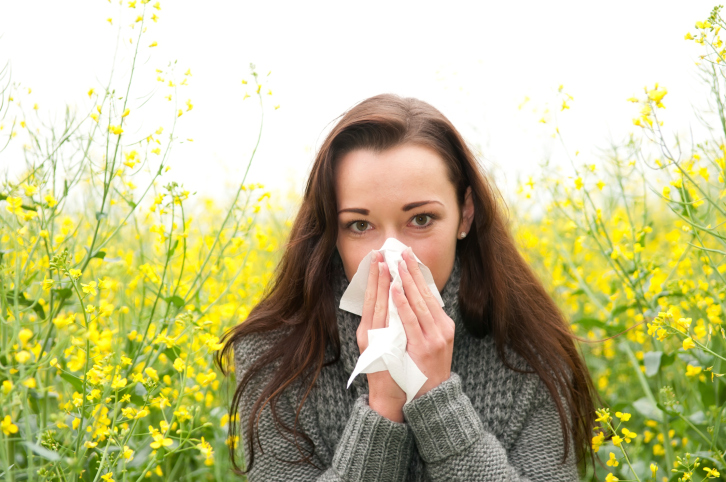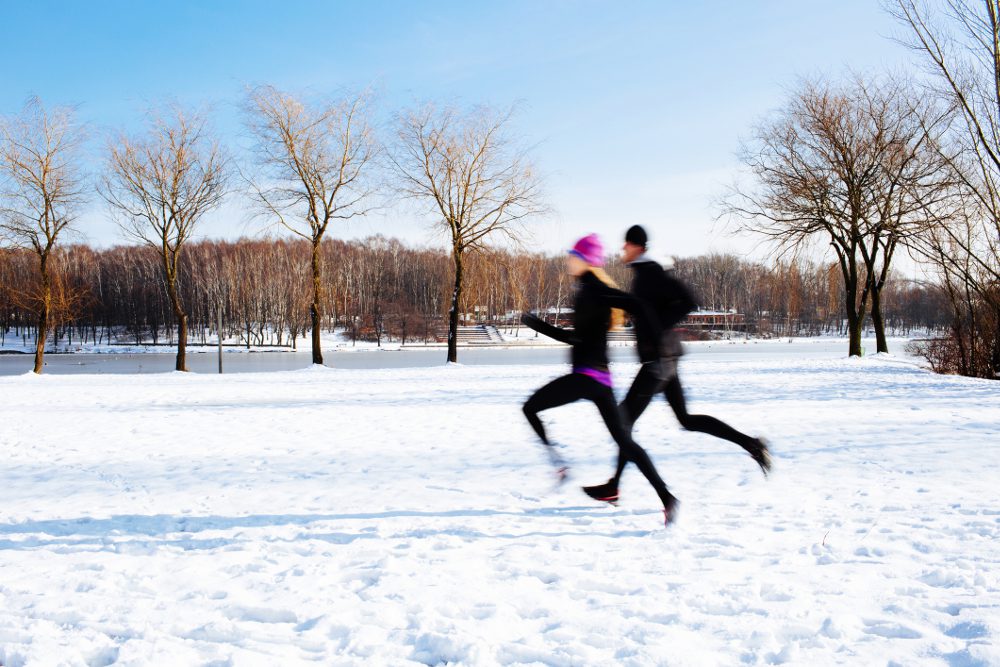Here’s how to stop coughing after your run
Prevent runner's cough with these simple steps

Whether you refer to it as runner’s cough or track hack, getting a cough after a run can be downright annoying. And while it is relatively common and not typically cause for concern, there are steps you can take to prevent it from happening. Here are six reasons you might be coughing after your run, and ways you can deal with the problem.

Exercise-induced bronchoconstriction
Sometimes, the heart rate increase that occurs when running can cause a hyperactive response from your lungs. This can cause your airways to constrict temporarily, which can cause you to cough. According to the American College of Allergy, Asthma, and Immunology (ACAII), this is referred to as exercise-induced bronchoconstriction (EIB).
EIB will typically peak about 10 to 15 minutes after you’ve completed your run, and should resolve on its own within one hour. Along with a cough, other symptoms of EIB include shortness of breath and chest tightness.
The solution: If this happens to you often, you may want to talk to your doctor about using an inhaler 15 to 20 minutes before you head out for your run. In some cases, a doctor may also prescribe medication that can temporarily open up your airways.
Seasonal allergies

Running outside when the pollen count is high can lead to sneezing, wheezing, and coughing. If you have asthma and allergies, this reaction may be even more severe, but it can happen to runners who don’t typically have issues with seasonal allergies.
The solution: If you think air quality is the reason behind your coughing, do your best to run at times of day when the pollen count is the lowest, like early in the morning or later in the evening. If you’re having a really hard time, consider running indoors on days when the pollen count is really high.
Postnasal drip
Postnasal drip is a constant, steady trickle of mucus from the back of the sinuses that can irritate the throat and cause you to cough. Running outdoors, particularly when it’s cold outside, can worsen postnatal drip.
The solution: Make sure you’re drinking plenty of water throughout the day, which will help thin out your mucus so it can pass through your nasal cavities more easily. Hot liquids like herbal tea work especially well. Wearing a face covering while you’re out running can also help because it warms up the air and adds more moisture to it before you breathe it in, which can help reduce mucus.
Acid reflux

Laryngopharyngeal reflux occurs when acids from your stomach make their way up to your throat and induce coughing. Unlike EIB, which tends to go away quickly, this is a chronic, long-term cough.
The solution: Avoid foods that can trigger acid reflux, like coffee, alcohol, citrus fruits, spicy foods, onions and tomatoes. In particular, you should avoid these foods several hours prior to running to prevent them from coming back on you during or after your run.
Cold weather

When you breathe in air that’s dryer than what’s already inside your body, it can induce a cough. This is common in the winter, when the air tends to be much drier than during the summer months. According to the Cleveland Clinic, breathing in dry air can cause a loss of heat, water or both from your lungs, which can lead to coughing, wheezing or feeling short of breath when exercising.
The solution: As mentioned earlier, wearing a face-covering during the winter can help moisturize and warm up the air you’re breathing before it hits your lungs, which can prevent coughing afterward.
Dysfunction in your vocal cords
In some cases, the problem may be that your vocal cords aren’t opening up correctly. This can cause several symptoms, including coughing, wheezing, difficulty breathing at rest or trouble breathing during exercise.
The solution: If you think this may be your problem, talk to your doctor who will diagnose, and then be able to treat, your symptoms.


